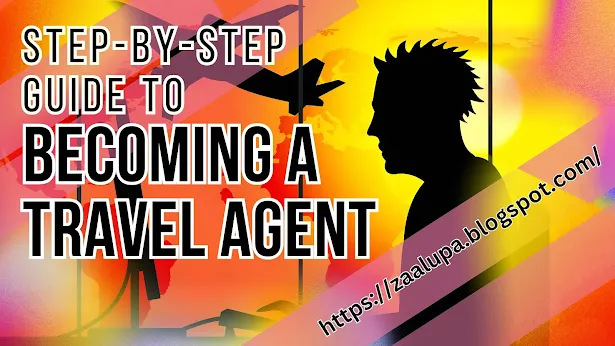1. Evaluate Your Aptitude and Passion
T(caps)ravel agents are the architects of dream vacations. They require exceptional communication skills, meticulous attention to detail, and a customer-first attitude. Ask yourself:
- Do I enjoy interacting with diverse individuals?
- Can I handle complex travel logistics with precision?
- Am I eager to learn about new destinations and cultures?
2. Educational Foundation While not mandatory
A formal education in travel and tourism can set you apart. According to the U.S. Bureau of Labor Statistics, travel agent employment is projected to grow by 5% from 2020 to 2030. Programs often include hands-on training, which is invaluable in this field.
3. Professional Certifications
Certifications can enhance your credibility. For instance, becoming an IATA Certified Travel Agent can increase your earning potential by up to 10%. Research certifications that align with your aspirations.
4. Carve Your Specialty
The travel market is vast. Specializing in a niche – be it eco-tourism, cruise vacations, or cultural tours – can help you stand out. Determine what excites you most and build your expertise there.
5. Collaborate with a Host Agency
Joining a host agency can be a springboard for your career, offering mentorship, resources, and industry connections. It’s a strategic move, especially when starting out.
6. Cultivate Your Business Networking is key
Create a robust online presence with a professional website and active social media engagement. Remember, repeat business is often a travel agent’s bread and butter.
Advantages and disadvantages of being a travel agent
Advantages:
- Flexibility: Set your own schedule and work from anywhere.
- Travel Perks: Access to discounts and insider knowledge.
- Personal Satisfaction: Helping customers create unforgettable experiences. It can be difficult to stand out.
Disadvantages:
- Irregular Income: Earnings can fluctuate seasonally.
- Intense Competition: Standing out in a crowded market can be challenging.
- Complex Problem-Solving: Dealing with travel disruptions requires quick thinking and resourcefulness.
Key Takeaways and Resources
- The Travel Institute (TTI) offers specialized courses and certifications.
- Penn Foster provides a comprehensive program for TAP certification.
- Alison and other online platforms like Udemy, Coursera, and edX offer a variety of courses tailored to your budget and interests.
Combine online learning with real-world experience through internships or volunteering. Check out resources like the ZaaLupa Travel Blog and Zafaminhas YouTube Channel for additional insights.
Frequently Asked Questions
Q: What’s the average income for a travel agent?
A: The average travel agent earns approximately $40,660 per year, with top earners reaching over $66,080.
Q: How long does it take to become a travel agent?
A: It can take anywhere from a few months to a year to complete training and earn certifications, depending on your chosen path.
Conclusion: Charting Your Path in the Travel Industry
As you embark on this exciting career path, remember that becoming a travel agent is more than just a job; it’s a lifestyle that allows you to share your passion for travel with others. With the right blend of skills, education, and dedication, you can build a thriving business that not only fulfills your dreams but also brings joy to your clients. The world of travel is vast and ever-changing, offering endless opportunities for those willing to take the journey.
So, pack your bags with knowledge, lace up your shoes with determination, and step into the world of travel with confidence. Your adventure as a travel agent begins now, and the destinations you’ll discover are limitless.
(getButton) #text=(Become a Travel Consultant Playlist) #icon=(link) #size=(1) #color=(#004AAD)
(getButton) #text=(Amadeus Reservation Playlist ) #icon=(link) #size=(1) #color=(#00BF63)
(getButton) #text=(Amadeus Fares & Ticketing Playlist ) #icon=(link) #size=(1) #color=(#FF914D)







